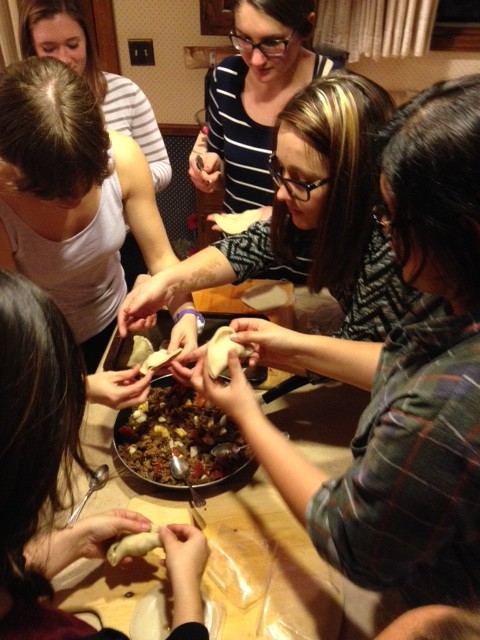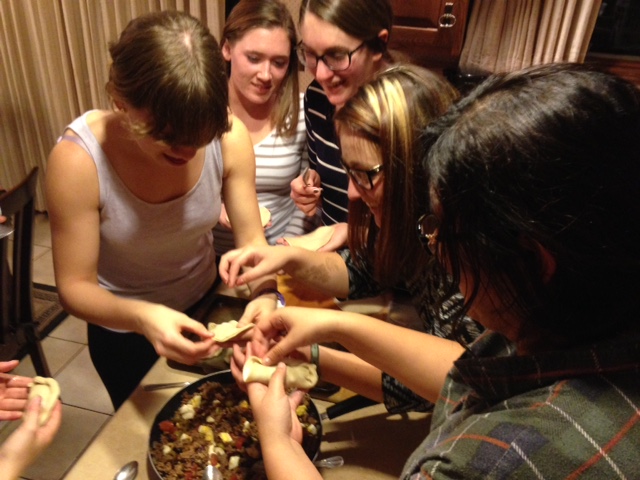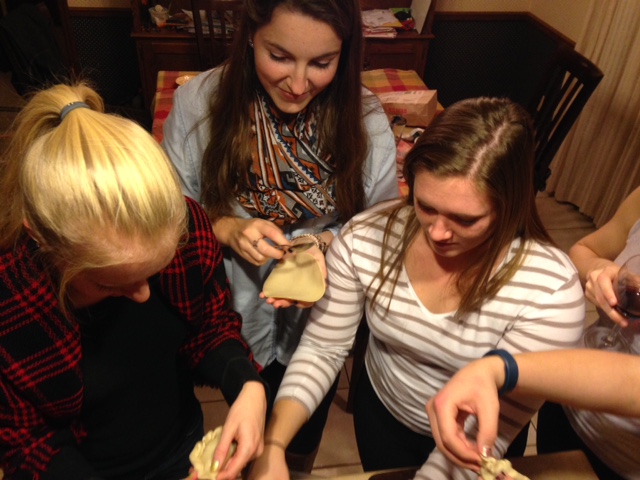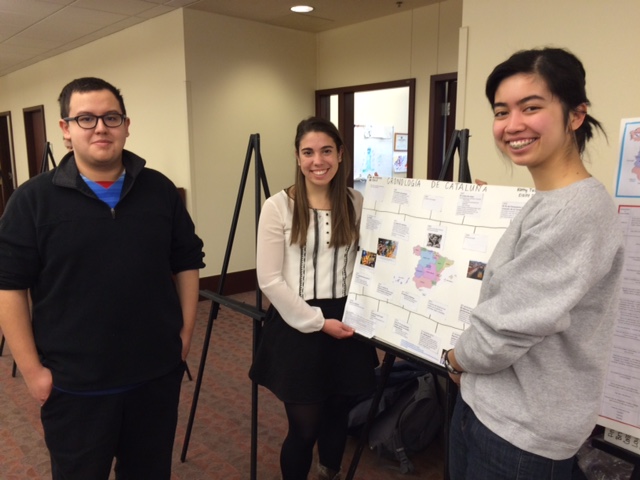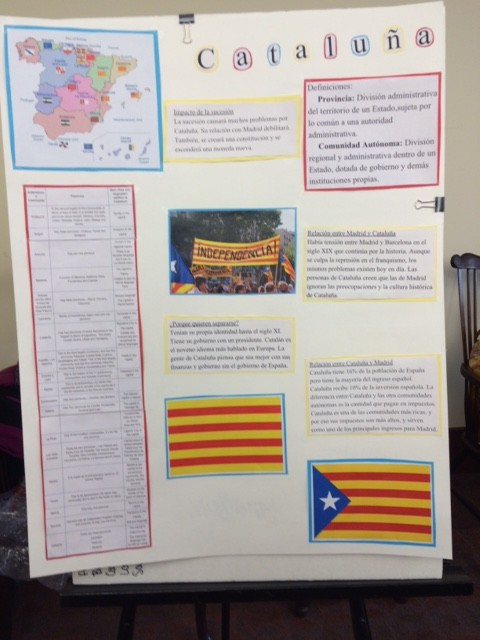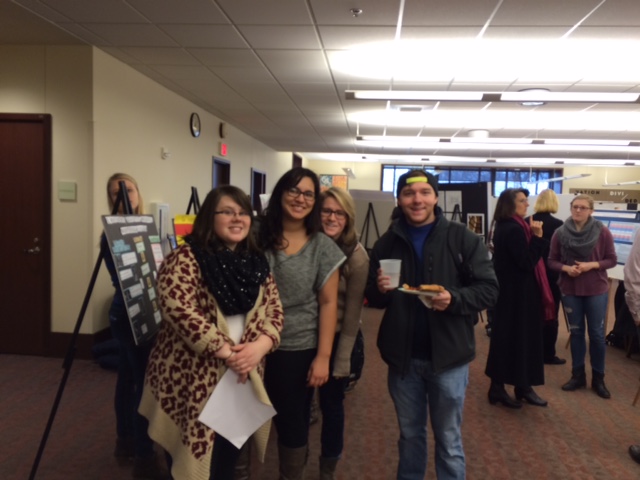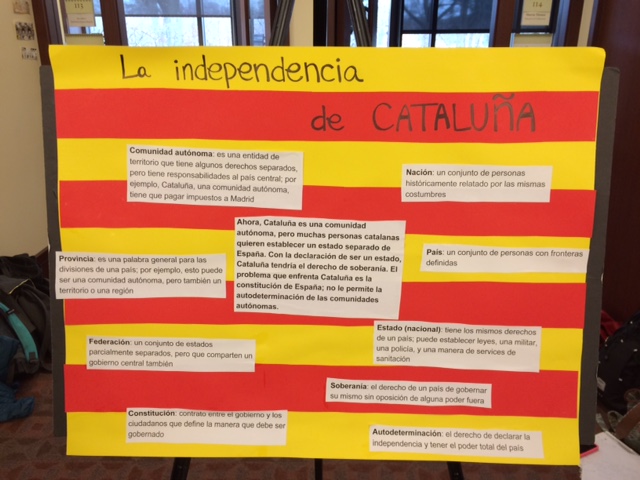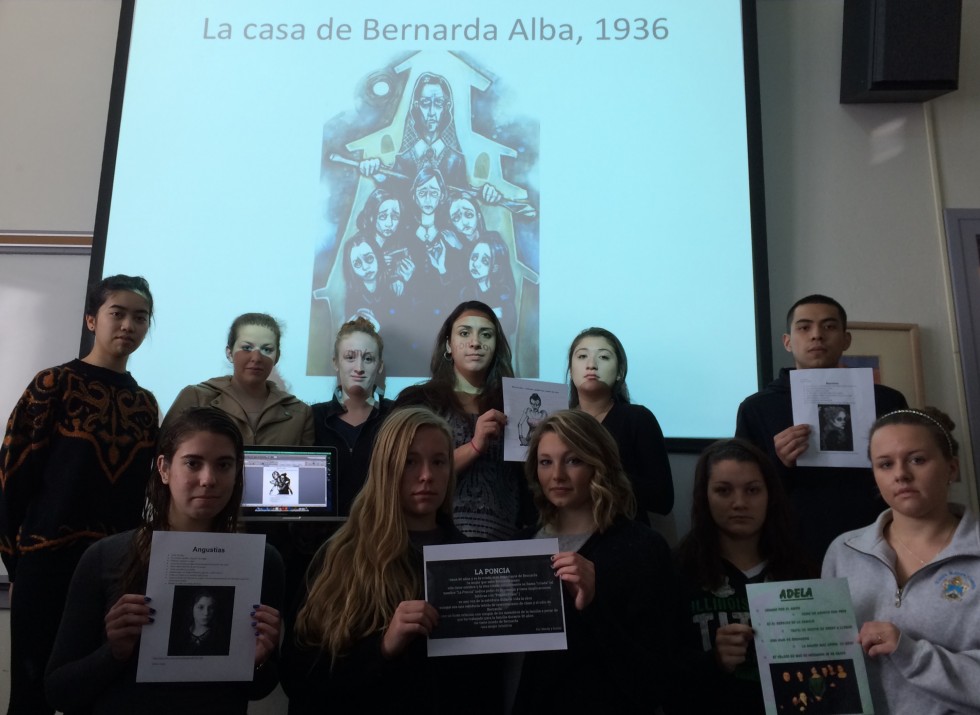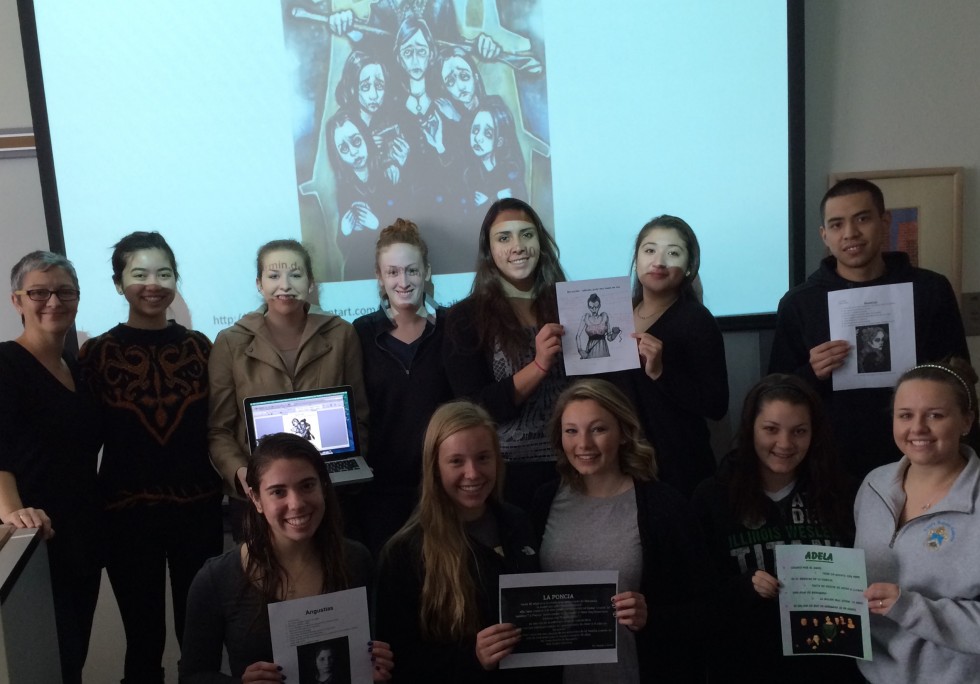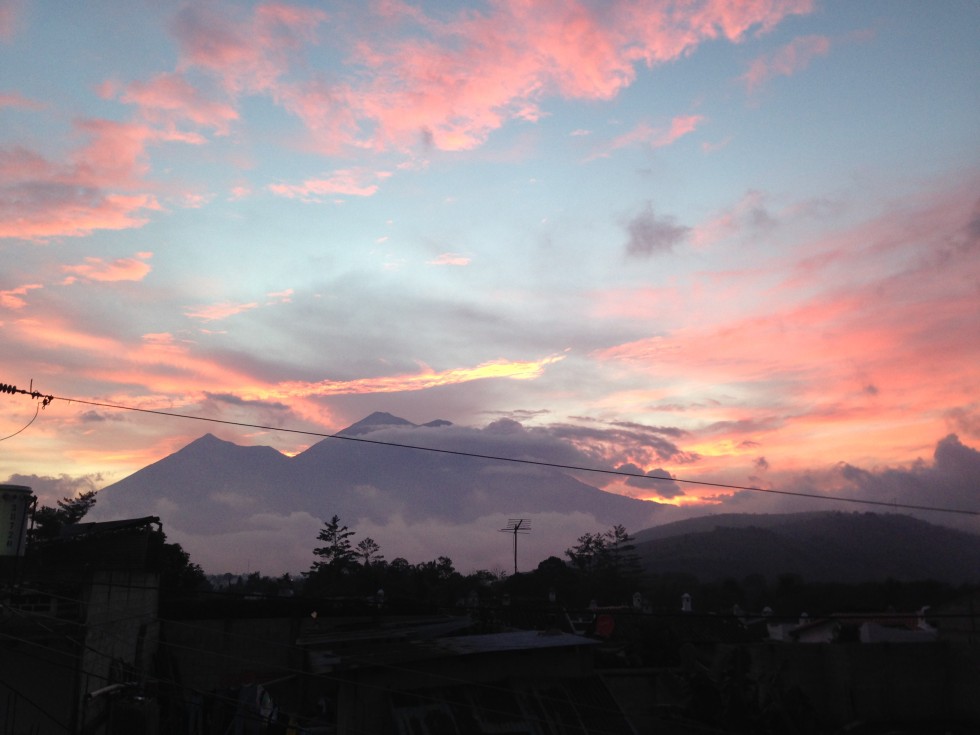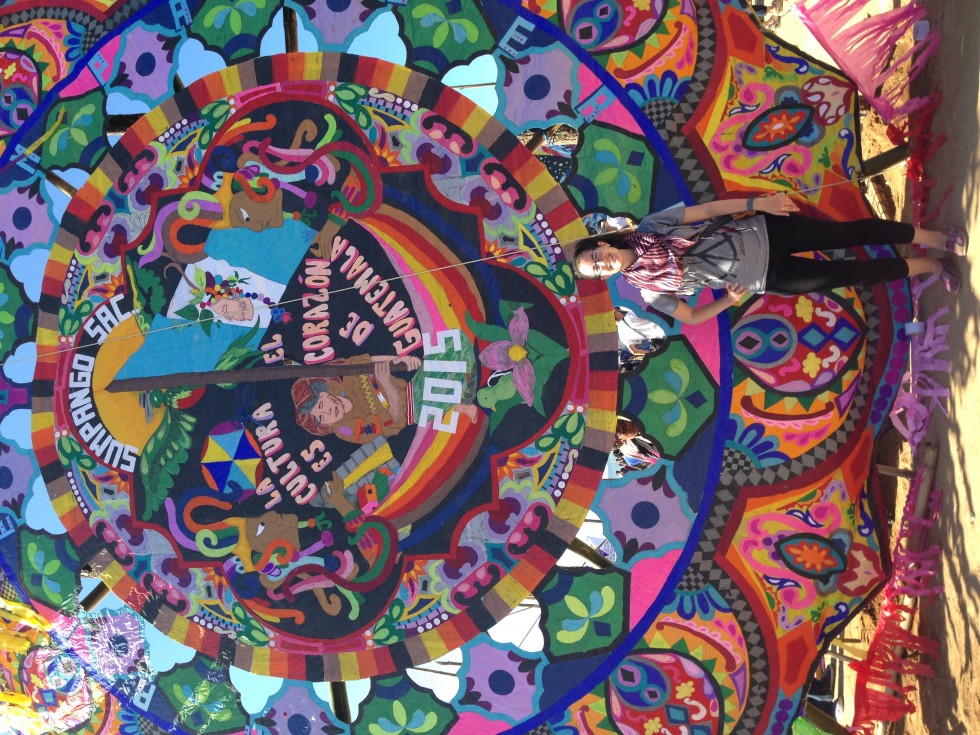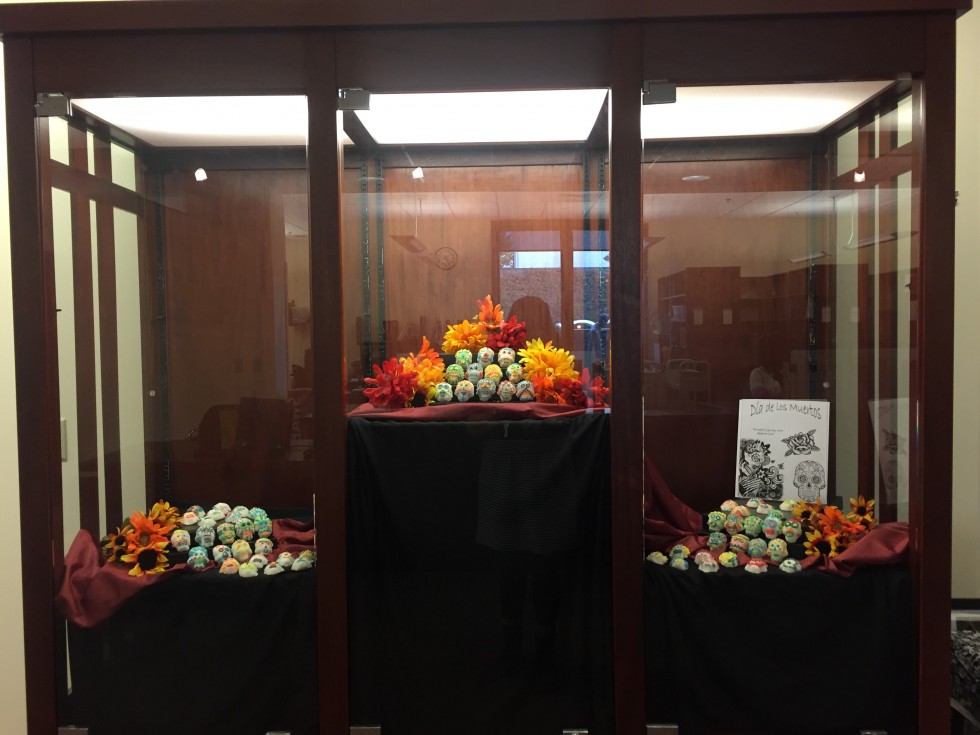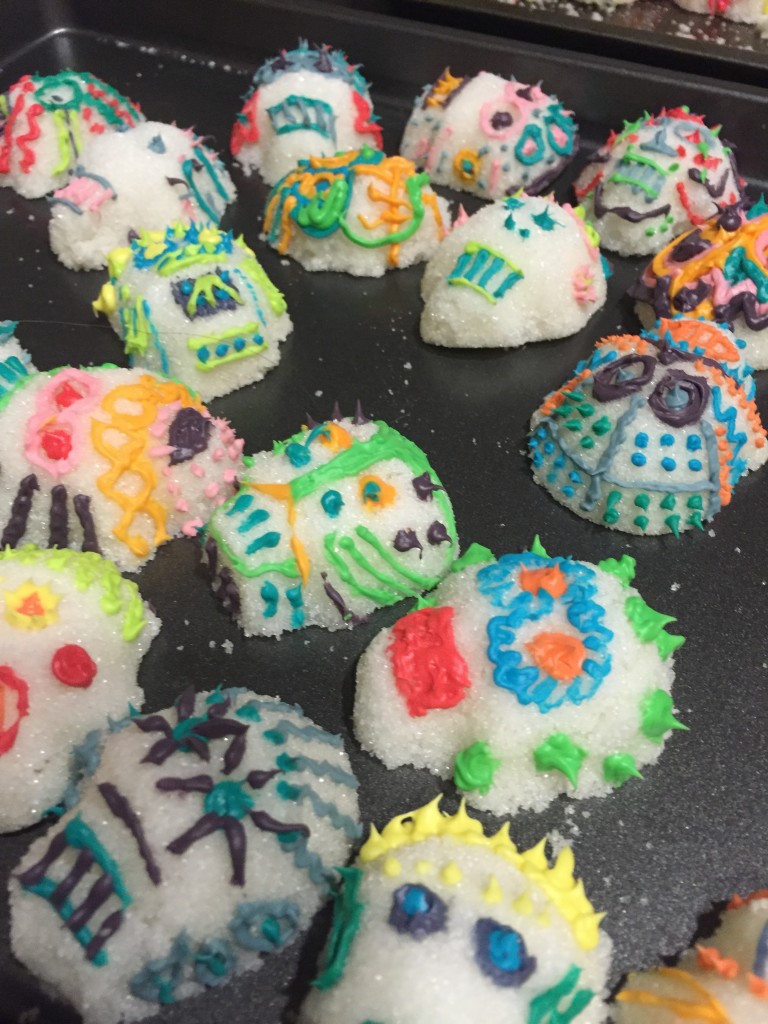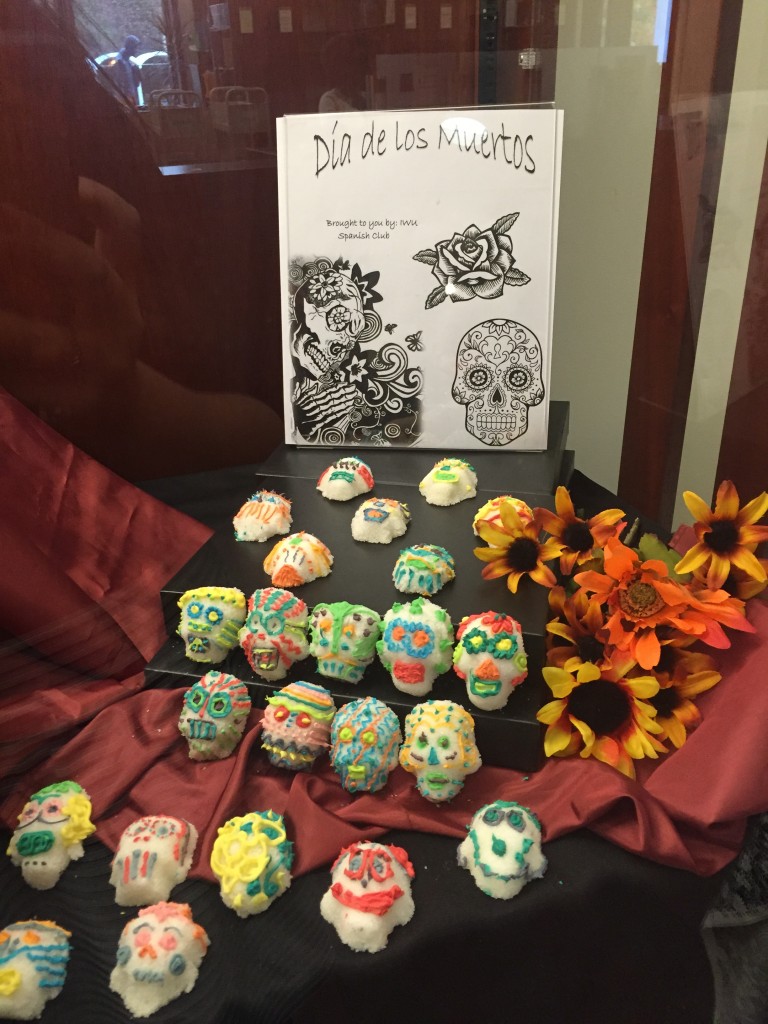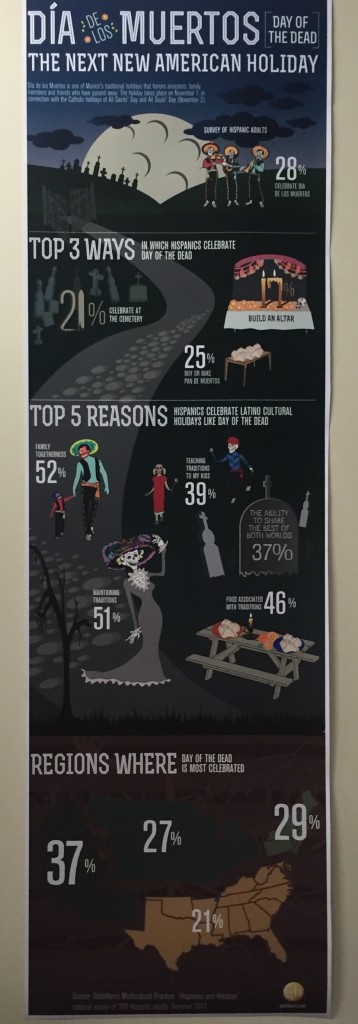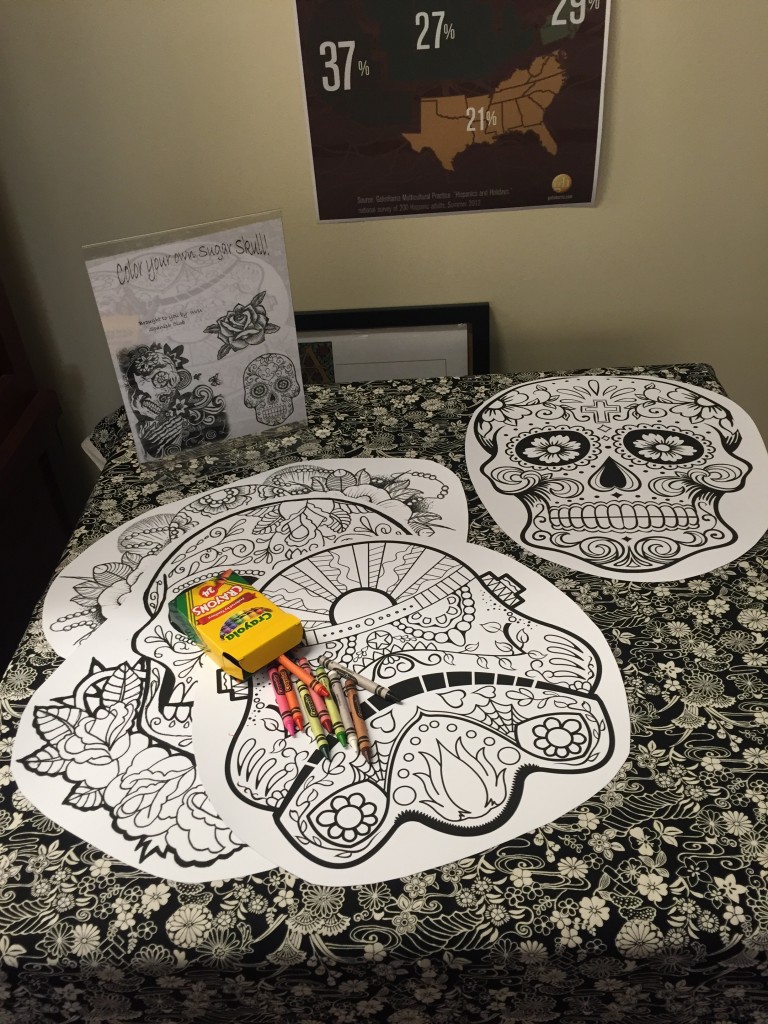El club español se reunió en casa de la profa. Isabelli para una clase de cocina. Preparaon empanadas argentinas, tortilla de papas, pan con tomate y fresas con crema. ¡Qué rico todo!
All posts by Carolyn Nadeau
Cataluña y su posible independencia
Los estudiantes de SPAN 314 presentaron sus proyectos sobre la posible independencia de Cataluña en el Open House de los “Course Clusters” que se celebró en la biblioteca Ames. Este año el tema del conjunto de clases es “¿Nación(es) dividida(s)?”. Para más eventos haz clic aquí.
Una lectura dramática de “La casa de Bernarda Alba”
Emmy Grace (’11) en Guatemala
Emmy Grace está viviendo en Guatemala donde trabaja con cooperativas de café y artesanos locales con la companía, De la Gente. Uno de los programas es el turismo comunitario y Emmy es la directora de “community engagement”. Entre otras responsabilidades recibe grupos que vienen por 1-2 semanas para viajes de “alternative breaks” y “service learning”.
Nos mandó unas fotos preciosas con el siguiente mensaje:
“Fui a un lugar que se llama Semuc Champey el mes pasado. Es un lugar muy bonito con piscinas naturales. Para el día de Todos los santos fui a un festival con cometas gigantes! Y en septiembre el pueblo donde está la oficina donde trabajo tiene una celebración en la comunidad. Y por último, una vista desde el techo de la oficina.”



